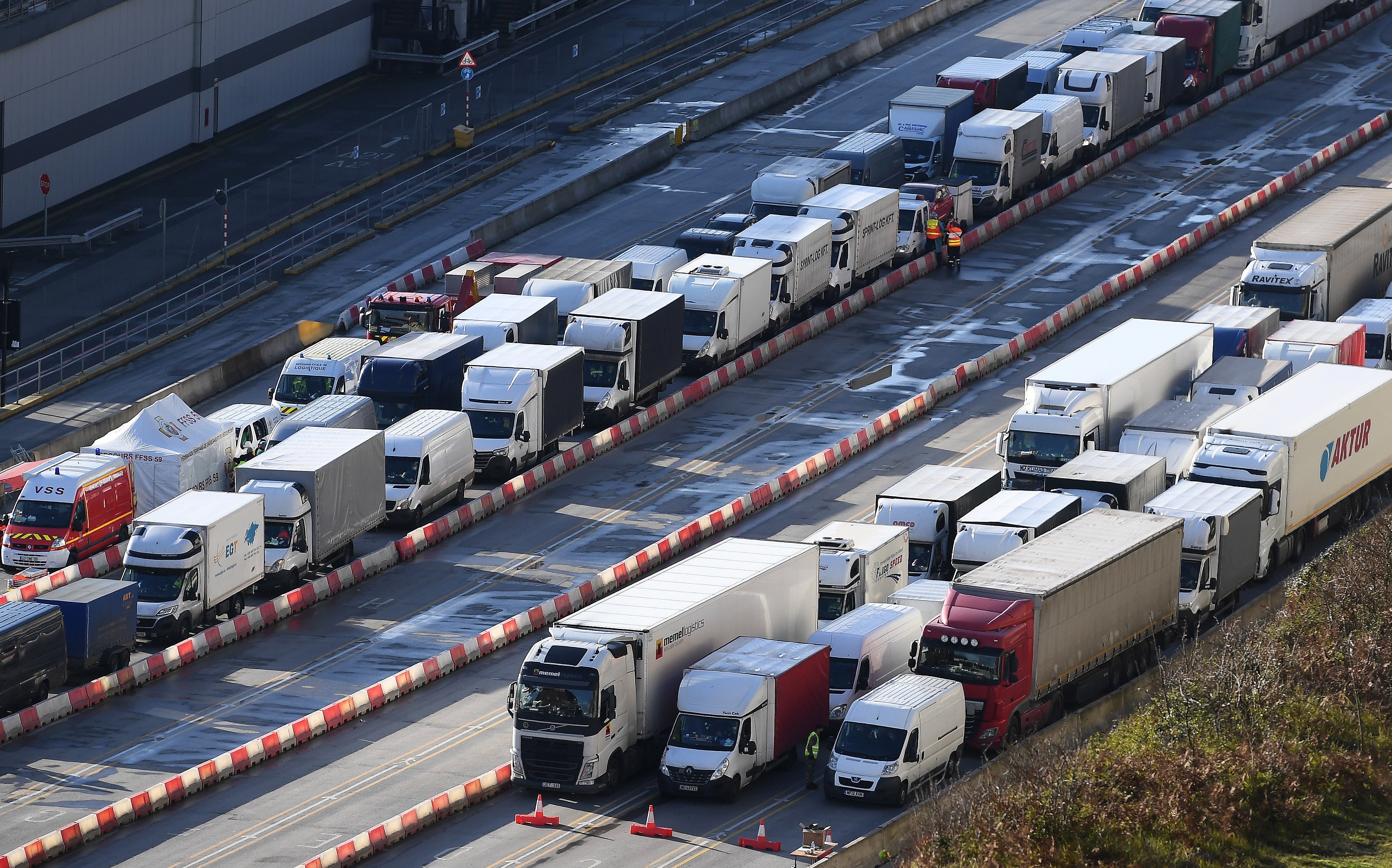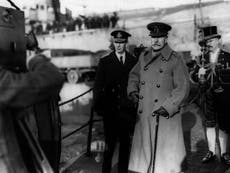English exceptionalism is, in fact, unexceptional – our government is making the same errors as other nationalist movements
The UK is out of the EU but the balance of power in Europe has tipped permanently against it


Your support helps us to tell the story
From reproductive rights to climate change to Big Tech, The Independent is on the ground when the story is developing. Whether it's investigating the financials of Elon Musk's pro-Trump PAC or producing our latest documentary, 'The A Word', which shines a light on the American women fighting for reproductive rights, we know how important it is to parse out the facts from the messaging.
At such a critical moment in US history, we need reporters on the ground. Your donation allows us to keep sending journalists to speak to both sides of the story.
The Independent is trusted by Americans across the entire political spectrum. And unlike many other quality news outlets, we choose not to lock Americans out of our reporting and analysis with paywalls. We believe quality journalism should be available to everyone, paid for by those who can afford it.
Your support makes all the difference.The view from the top of the Western Heights, the great fortified hill overlooking Dover, has the advantage of taking in many of the key features shaping life in Britain in the age of Brexit and Covid-19. The most important of these is the proximity of the French coast, glittering on the horizon 22 miles away, a fact of geography that will continue to determine what happens in Britain more than any trade deal or withdrawal agreement with the EU.
If proof of this were needed, it was provided over Christmas by the devastating impact of the French ban on untested lorry drivers crossing the Channel in a bid to stop them spreading the new variant of the virus to France. The giant backlog of stranded trucks and trapped truck drivers graphically illustrated the dependence of Britain on unhampered links to continental Europe.
The brief fracas reinforced the menacing message already sent during the course of the negotiations with the EU that, when push comes to shove, the UK will always have to play the weaker hand in any confrontation. We have already witnessed this permanent tilting of the balance of power away from Britain and towards the 27 EU nations, with the UK agreeing to shift the commercial border between Northern Ireland and the Irish Republic to the middle of the Irish Sea.
Journalists briefly poured into Dover to report on how the super-efficient port, normally capable of sending 10,000 trucks a day to-and-fro between Britain and France, had been brought to nearly a complete halt. Few drew attention to another fact about Dover, more damaging to Britain than any short-term impediment to trade, which goes a long way to explain its decision to leave the EU.
A few hundred yards from the thriving port is the moribund town of Dover, whose people draw almost no benefit from the £122bn a year in trade that flows past their doors. Instead, they have seen the disappearance of big employers – marine services, paper factory, barracks, prison – from Dover in the 48 years that their country has been a member of the EU.
Brussels may not be responsible for this economic decay – it was, rather, the unwitting scapegoat – but it paid the price for presiding over what many people in Dover rejected as an unacceptable status quo. The Brexit campaign and the Johnsonian version of the Conservative Party, now transformed into a thorough-going English nationalist party, became the convenient vehicle for their grievances over being left behind or left out.
Dover provides a telling parable about modern England because it not only contains side-by-side examples of the success and failure of globalisation, but it is filled with reminders of a more glorious past. Henry II’s magnificent 12th century fortress, the greatest medieval castle in the country, is close to the headquarters of the Dunkirk evacuation, dug deep into the White Cliffs. Both sustain the nationalist conviction that Britain is better off on its own. But an undiluted diet of ancient victories and achievements, with all the defeats and humiliations left out, fosters an over-confidence based on wishful thinking about the real world and a dangerously misleading belief that “we did it before and we can do it again”.
Such magical thinking is not exclusively English. On the contrary, what is striking about English “exceptionalism” is that it is so unexceptional. All nationalist movements down the centuries, from Hanoi to Warsaw and Harare to Philadelphia, have cultivated a sense of ethnic or cultural superiority or, at least, difference. A mistake of the Remainers in the referendum and in subsequent years was their failure to understand that the national state remains the focus of collective loyalty and identity for much of the population, a feeling reinforced by the relentless onslaught of cultural and economic globalisation.
A measure of English provincialism is that Dominic Cummings won both wide praise and condemnation for the supposed demonic cunning with which he devised all-embracing nationalist slogans, such as the notorious “Take Back Control”, which differs little from those chanted by liberation movements everywhere. Leave supporters would be horrified by the idea, but the mantras of the Brexiteers resemble closely those of Sinn Fein (“Ourselves Alone”), previously the most successful nationalist movement in the British Isles.
The remodelled ultra-English nationalist version of the Conservative Party shares the strengths and weaknesses of all nationalist movements. Boris Johnson is often accused by the media of “over-promising and under-delivering”, but this is the common behaviour pattern of nationalist leaders.
Such promises invariably bump into reality, but nationalists seldom own up to their mistakes, instead blaming hidden enemies inside and outside the country. The Brexiteers claimed during the referendum that personal and national liberty were the same thing. But once in power, it is the former – in the shape of courts, parliament, free press – that is swiftly sacrificed in the interests of the national project.
Such projects are usually in trouble because they are confected from dreams. Donald Trump promised to Make America Great Again, but he leaves it weaker, and more divided and discredited than ever. Johnson promises that Britain will “prosper mightily” outside the EU, though none of the Brexiteers have been able to produce a rational explanation as to why this should be so.
I have always argued that the greatest danger lies not in Brexit but in the Brexiteers themselves because they were selling political and economic snake oil and would go on doing so. Moreover, they were selling it to different people under different labels: the anti-EU coalition combined free-market, Thatcher-worshipping activists working in temporary concert with those who saw themselves as Thatcher’s victims.
Until recently, the Brexiteers seemed to be swimming with the tide. Everywhere, international alliances and global organisations like the UN, EU and Nato appeared to be on the wane. A former British diplomat remarked to me in 2016 that “Europe is full of think tanks and academic institutions studying integration, but it turns out that they should have been studying disintegration”.
His prediction seemed to be unpleasantly justified by events at the time and his thesis received further proof when the supreme test of the Covid-19 pandemic in 2020 saw nation states look exclusively to their own interests. But since the summer there are signs of a turn in the tide. Trump was capsized by his mad-cap incompetence during the epidemic. The EU set up a common €750bn relief fund. Whatever radical plans Johnson may have had to remake the British state may have been permanently holed below the waterline by his own incompetence and the calamitous economic damage inflicted by the epidemic.
Back in 2016 it did not look inevitable that the EU would become, at least temporarily, more united because of Brexit, while the UK would become more divided, probably permanently, with Scotland and Northern Ireland more and more detached from the union. As for England, Brexit was a symptom of terrible problems for people living in places like Dover, but there is no reason to believe that it will do anything to help them.




Join our commenting forum
Join thought-provoking conversations, follow other Independent readers and see their replies
Comments